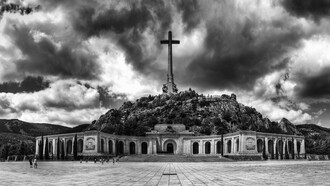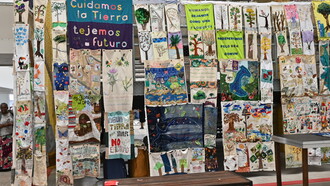*I am a member of that detested swarm, like termites we have infiltrated and infested city. Contorting and fashioning it to our own desire, we are the voracious expatriates. Crass and non-German speaking, no doubt once our bellies satisfied and rents elevated, we will move on to the next fashionable European capital. We are responsible for Berlin’s emergent death.
Berlin is proof that city can neither be tamed nor dismantled with conventional tools, instead it demands a different approach. Etched in pencil, Berlin plays at constantly rubbing itself out and drawing a new upon its own parchment. Its never-ending emergent dynamics distorted by the stains of its faded contours, Berlin is all at once old, modern and post-modern. Often it struggles against itself, against its very nature and the demands of the present that forever impose upon its character. And therein lays its most beautiful and complex characteristic, that is to say, its unsettled nature that plays truant to reality.
Make no mistake about it, Berlin is not some wild concrete maze, instead, the issue of “untamed” refers to its awkward constituting parts. Just observe its uncoordinated architecture and you will see what I mean. Self-domestication openly brawls with a flaunting liberalism as the city tears at itself to reach and achieve some semblance of unity. Mind you though, upon first encounter Berlin will deceive you by bristling with togetherness, and you will have the feeling of a city who has reached peaceful composure, but scratch a little deeper and you will discover its maladroit constituting pieces.
Berlin is a haphazardly puzzled together collage of cement, people and colours.
For sure, it would be erroneous to think that a city is and can only be one thing - a singular entity of mind body and purpose. In reality cities, like people, are endlessly dimensional, their inhabitants, spaces and environments engaged in a constant ballet, the resulting choreography being a unique dance - our interpretation of which remains an intensely subjective experience. We meanwhile, the puppets, the marionettes of this rhythmic display, attempt with futility to hold onto the reigns, thinking that we can both guide and fashion city to our own will and desire.
Twenty-five years since the re-unification of its estranged parts, and still Berlin’s fractures remain markedly visible. For sure, the work of repair was attempted, but never with earnest exhaustion and determined will. But all that is not in my purview for I am far from a native. However, I would argue that it is that same state of fracturisation that has opened the door and enabled the colonisation of Berlin by the expat community. These archetype artist hipster people congregate in cafés and shared working spaces, often boasting about their latest “start-up” adventures, meanwhile original Berliners are forced increasingly to the outskirts and fringes of the city and community. To be be clear, in Berlin there is no pressure to adopt either the language or culture, and so they don’t. I wonder, whom does the Berliner despise more, the tourist intent on a drug-drowned weekend clubbing experience, or the pseudo-artist beard-sporting expat who plans to stay longer. Of coursse there those who would speak of the value of foreign infusion and point to the potential of hybridity, but both of these are illusionary hopes, for as I said, in Berlin their is no obligation to learn of or respect its native soul.
Berlin, the site and victim of cut and pasting. A city that no longer recognises itself, its native soul lost in the tangles imagination and re-imagination*
Perhaps it is each generation’s duty to speak of the death of their own city, to lament the passing of the places in which they once played, ate and grew up in. This is no doubt the result of our stubborn heart’s instance to cling onto the memories of the past, this is the condition of nostalgia that is both unavoidable and entirely human. Change, the inevitability of city confronts the human psychological effort to challenge the very physiology of time itself. But even if city were to remain unchanged, we ourselves shift, grow, develop and mutate into different beings. And yet in spite of this we desperately attempt to hold on to the past: is there any greater absurdity than the human predisposition for contradiction.
Holding onto Berlin is no doubt a fruitless affair given that the death of the city’s aged soul was always assured and expected. Like London and Amsterdam before it, it will crumble under the onslaught of cool, fashion and modernity. This is not some dank post-mortem though, as plenty an ember remain, rather this is a prognisis of what is to come. It is only a matter of time now until Berlin becomes what all modern European cities have abandoned themselves to, that is to say, urban cemeteries of the past whose now gentrified spotted suburbs play host to European conformity. And as for those who grapple with nostalgia, that is, a past fashioned by our own romantically disposed memory, theirs is a lost battle. The time of the appropriation of Berlin by foreign individuals and communities for their own particular needs and purposes has come. Berlin, once the last best hope for European city, has now elapsed its moment.
I am an expat, a tic who gorges upon culture bound in cement and then departs once bloated. This could be pardoned, and even pitied were it just me, but we are a plague, a swarm, a viral contusion that moves from city to city. Berlin is merely the site of our latest feast.















